Birmingham Pub bombings: Victims were unlawfully killed
- Published
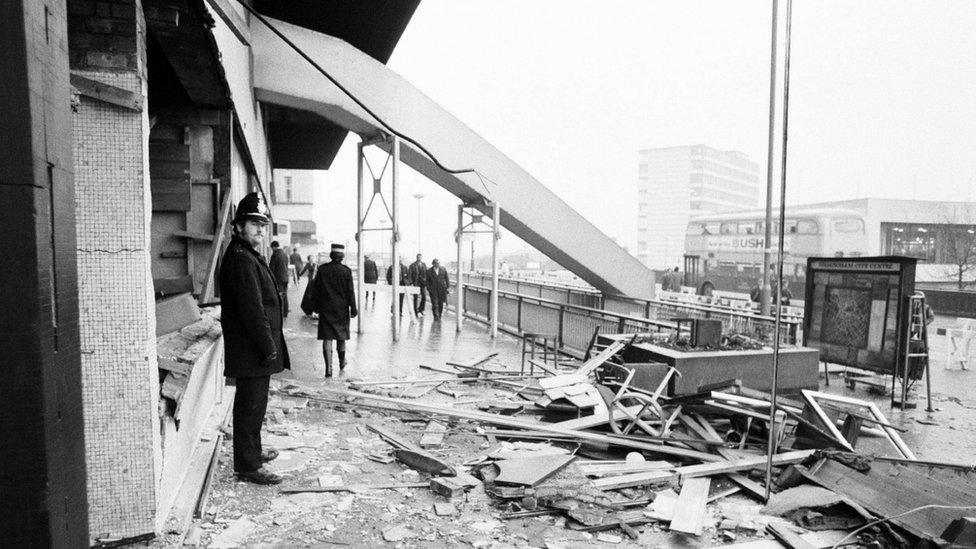
The blasts ripped apart the Mulberry Bush pub at base of the Rotunda and the Tavern in the Town in nearby New Street
An "inadequate" IRA warning call caused or contributed to the deaths of 21 people in the 1974 Birmingham pub bombings, a jury has found.
The blasts at the Mulberry Bush and Tavern in the Town pubs on the night of 21 November also injured 220 people.
Inquest jurors concluded there were no errors in the way police responded to the warning call and their actions did not contribute to the loss of life.
Victims' families have called on police to bring the killers "to justice".
Julie Hambleton called on police to bring the bombers to justice
Julie Hambleton, whose sister Maxine died in the bombings, said: "West Midlands Police have always told us when they get new evidence they will act on it, well here you go, you have the new evidence and I'm sure there is more to be had and more to be found."
She did not describe the inquests' conclusion of unlawful killing as "vindication", but said it "gives us hope to move forward to get those who are still alive caught and for justice to be had".
West Midlands Police (WMP) said there continued to be an active criminal investigation.
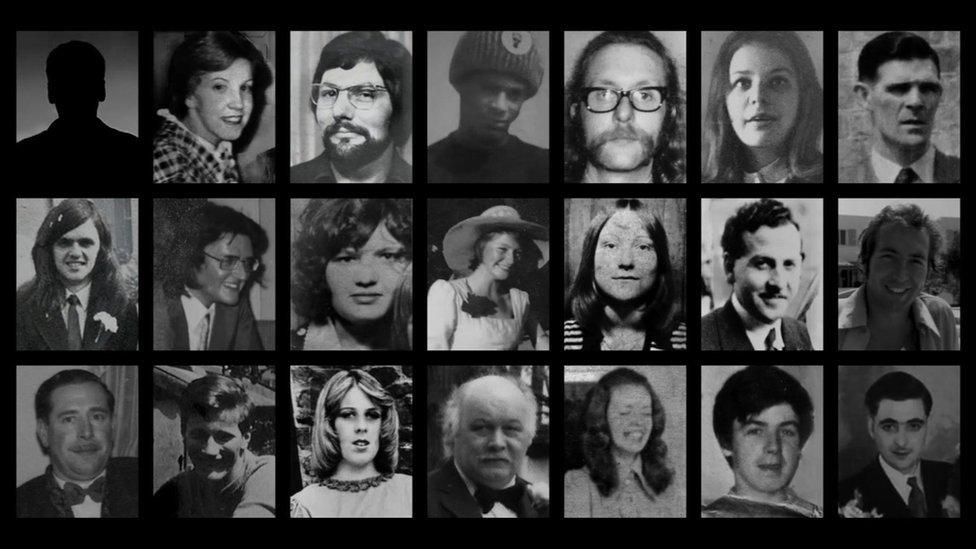
The victims of the 1974 bombings were aged between 16 and 51
Coroner Sir Peter Thornton QC said the bombings were "etched in the history" of the city.
Jurors at Birmingham Civil Justice Centre found the warning call was not adequate for the purposes of ensuring that lives were not lost in the explosions.
The call, made to the Birmingham Post and Mail at 20:11, gave the bomb locations as the Rotunda building and the nearby Tax Office in New Street but made no mention of pubs, costing the police vital minutes.
The first bomb, weighing between 25lb-30lb (11kg-14kg), detonated in the Mulberry Bush seven minutes later.
The second bomb, weighing 30lb (14kg), exploded in the nearby Tavern in the Town two minutes later.
Both pubs, popular with young people, were busy on the night of the bombings. It was a Thursday, which was payday for many, and also the day for late-night shopping.
A third bomb was planted near the Barclays Bank on Hagley Road but failed to properly detonate that night.
Birmingham pub bombings: The five men in the frame
The jury at the six-week hearing said there was "not sufficient evidence" of any failings, errors or omissions in West Midlands Police's response to the bomb warning call, or in regards to two alleged tip-offs to the force giving advanced warning of the blasts.
Following the conclusions, Sir Peter said the "dreadful events will never be forgotten".
"It would be not right to leave the inquest without paying tribute to those who helped that dreadful night," he added.
"We always expect our emergency services, particularly the police and firefighters to be there for us at the time of disaster and they were."
The coroner went on to thank the members of the public who "just did the right thing and helped as best they could".
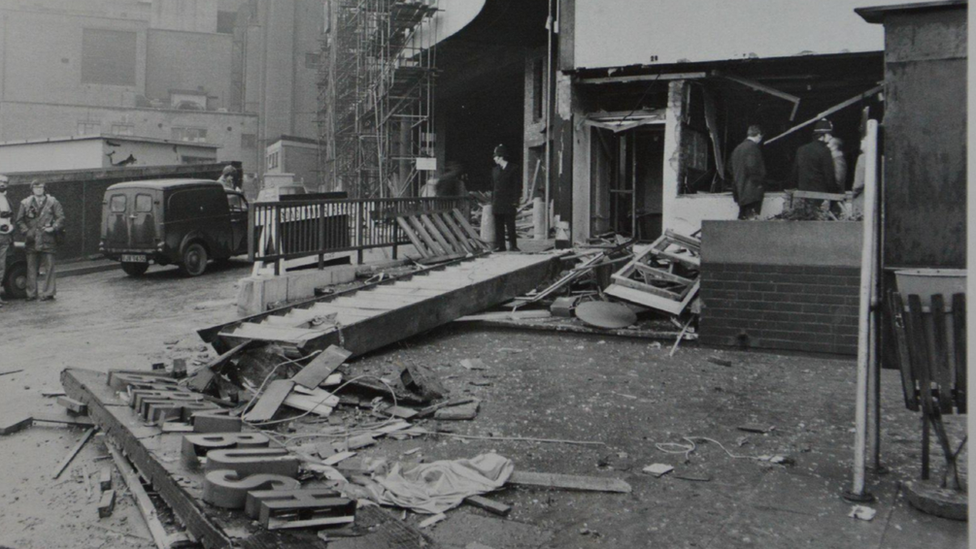
The first bomb was detonated at the Mulberry Bush pub
Leslie Thomas QC, representing 10 of the bereaved families, added thanks on their behalf to those who helped on the night of the attacks.
"We just hope, in light of the jury's unequivocal finding that the IRA murdered 21 innocent people, that West Midlands Police will now redouble their efforts in terms of those bombers who may still be alive to bring them to justice," he said.
The inquests came about after years of campaigning by families for a full account into what happened that night.
A botched police investigation led to the 1975 jailing of the Birmingham Six, but their convictions were quashed by the Court of Appeal in 1991.
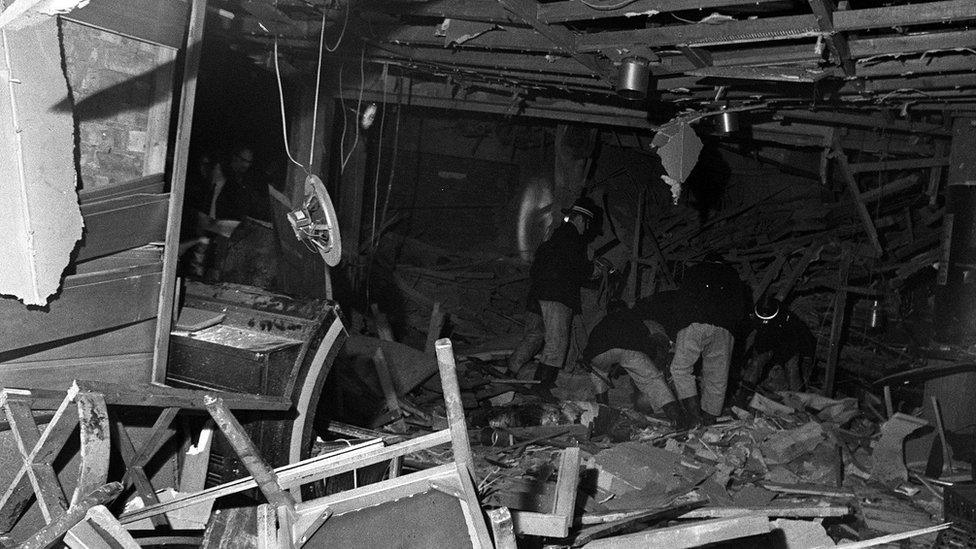
The bombs detonated within two minutes of each other
There was a dramatic twist towards the end of evidence at the inquests, when a former IRA member named the four the men he claimed were involved in the bombings as Seamus McLoughlin, Mick Murray, Michael Hayes and James Francis Gavin.
The man, identified in court only as "Witness O", said he had been authorised to give those names by the current head of the IRA in Dublin.
During the hearing Mr Thomas QC asked Witness O whether a previously named suspect, Michael Patrick Reilly, had been involved.
The witness said: "No, I don't remember him at all. Reilly? I would remember that."
Mr Reilly has always denied any involvement in the bombings.
After the inquests, WMP Chief Constable Dave Thompson said the force was "We are carrying out a number of active lines of inquiry".
"Though my absolute statement is, if we could bring people to justice we would do and at the moment we have an active criminal investigation."
- Published5 April 2019
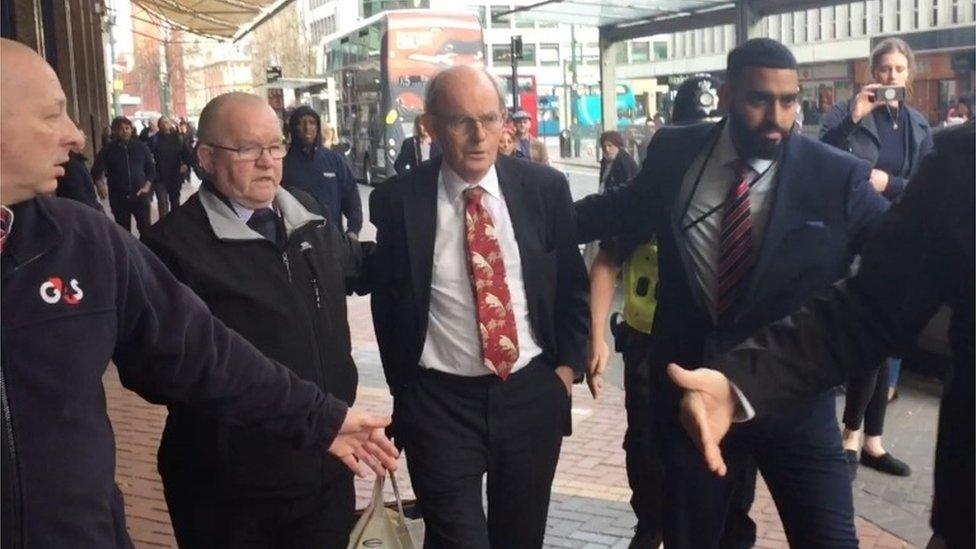
- Published3 April 2019
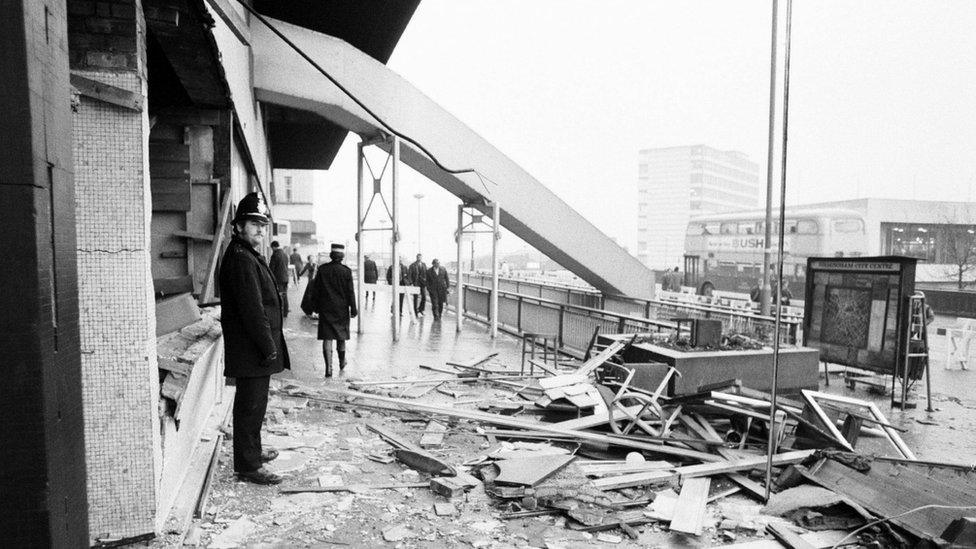
- Published22 March 2019
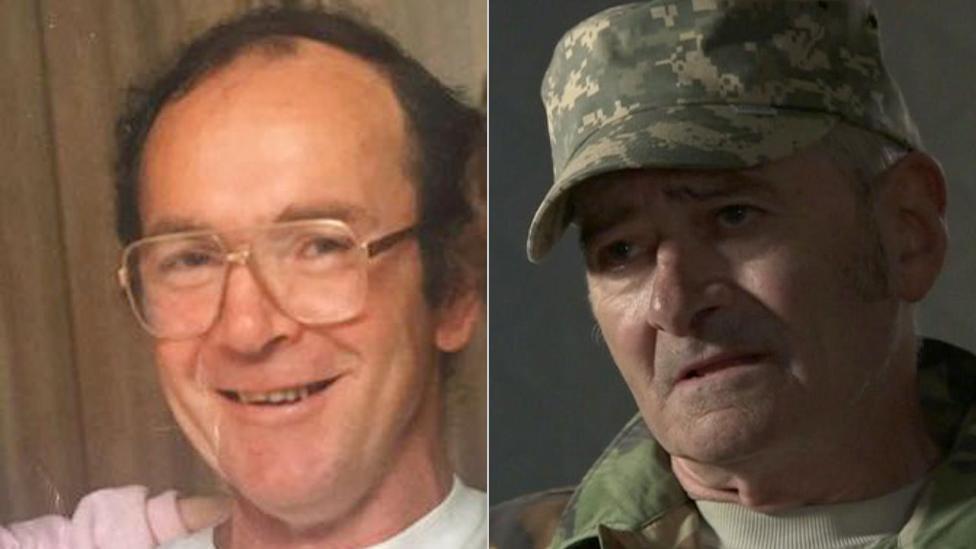
- Published21 March 2019
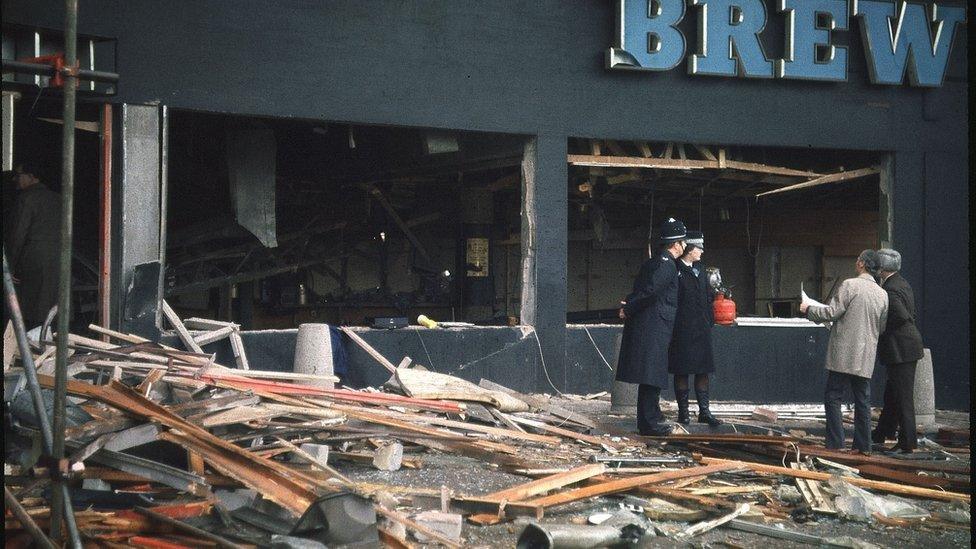
- Published13 March 2019

- Published8 March 2019
